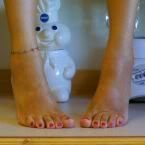
The book, a memoir, tells about the author's deeply dysfunctional family and I cannot stop thinking about it. It has left me in a bit of a mental and emotional quandary because, tho as dysfunctional as a family can get, these people also lived a life of vibrancy and love. They put meaning into the word, 'colorful.'
I looked up the phrase 'dysfunctional family.' I found this:
"Some of the characteristics of dysfunctional family systems are as follows:
Blaming; failure to take responsibility for personal actions and feelings; and invalidation of other family members' feelings.
Boundaries between family members that are either too loose or too rigid. For example, the parent may depend excessively on the child for emotional support (loose boundaries) or prevent the child from developing autonomy by making all the decisions for the child (rigid boundaries).
Boundaries between the family as a whole and the outside world may also be too loose or too rigid.
A tendency for family members to enact set roles--caregiver, hero, scapegoat, saint, bad girl or boy, little prince or princess--that serve to restrict feelings, experience, and self-expression.
A tendency to have an "identified patient"--one family member who is recognized as mentally unhealthy, who may or may not be in treatment, but whose symptoms are a sign of the inner family conflict. Often the identified patient's problems function to disguise the larger family issues. For example, a child may be regarded as a bully and a troublemaker in school and labeled a "problem child," when he may in fact be expressing conflicts and problems, such as abuse from home, by acting out and being "bad."
Family therapists, like other therapists, take many different treatment approaches--psychodynamic, behavioral, cognitive, or a combination of these therapies. They may talk to members individually, together, and in subgroups. They may ask family members to reenact situations, or to do "homework" by modifying elements of their behavior and responses. As with individual therapy, one of the goals of family counseling is to reframe problems so that family members can see specific events and behaviors more clearly in a broader systems perspective. "
Gale Encyclopedia of Childhood & Adolescence. Gale Research, 1998.
If you haven't read this book but plan on doing so, you might want to hold off reading this because there are some spoilers contained within.
This family is beyond poor. They often go days without eating, they cannot afford to wash their clothes regularly. For one, running water is not something they always have in their home. On top of that, they only own a few items of clothing. The mother is a manic depressive, the father is a severe alcoholic, and they are both drifters and dreamers. There are hints of sexual abuse perpetrated by extended family members and basically down played by the parents. The children are dragged from state to state, almost always in the middle of the night in order to escape from bill collectors and landlords.
Now here's the part I cannot really get to jive in my brain; despite all of this, is this really a dysfunctional family? t/hey don't really fit into any of the definitions I posted above. In fact, the parents were loving and supportive toward each other and their four children. They didn't try to squelch each others' dreams. For the most part, they adopted a live and let live attitude toward one another. And, rather than fostering any kind of leaning toward a cycle of dysfunction, they all were firm believers that anything was possible, that dreams were not meant to be just dreams but fully expected to become realities.
And so we have these four kids, who have lived their childhood in ways we would all deem as dysfunctional, who all became successful and thriving members of society.
So, were they dysfunctional? To me, the very word implies an inability to function. Yet these people functioned beyond merely well.
Perhaps, despite what would rightfully be labelled as abuse and neglect, negative childhood experiences are not as damaging as one would believe they are. Perhaps a deep and supportive love can override the effects of abuse and neglect. I'm beginning to wonder if we put too much stock on dysfunction and too little stock on love. And I am not trying to brush off abuse. I'm just saying that maybe our focus should change, just a little bit.



You can't beat a good dysfunctional family!
ReplyDeleteMum aka The Dragon used to throw me downstairs as a little kid. No harm done though I generally landed on my head ;-)
Dad was terrified of her and hid in the wardrobe
Uncle Patrick blew himself up making alcohol (it took the Fire Brigade 2 hours to put out the blaze in his garden shed and another hour to put him out three gardens away)
Auntie Ethel drowned in the toilet as she attempted to flush her deceased goldfish down it - she had a stroke and her head went in...when she was found she was a gonner but the goldfish survived. I presume the shock of Ethel heading down the pan must have revived it somehow...
Uncle Cyril poached sheep off the Lancashire / Yorkshire moors in a motor bike and sidecar. He'd run over the sheep and take it to a local butcher in the sidecar.
I could write a book I really could....oh....yeah...I am....
Oh, Four Dinners, you made me giggle. Thanks. I really needed that.
ReplyDelete